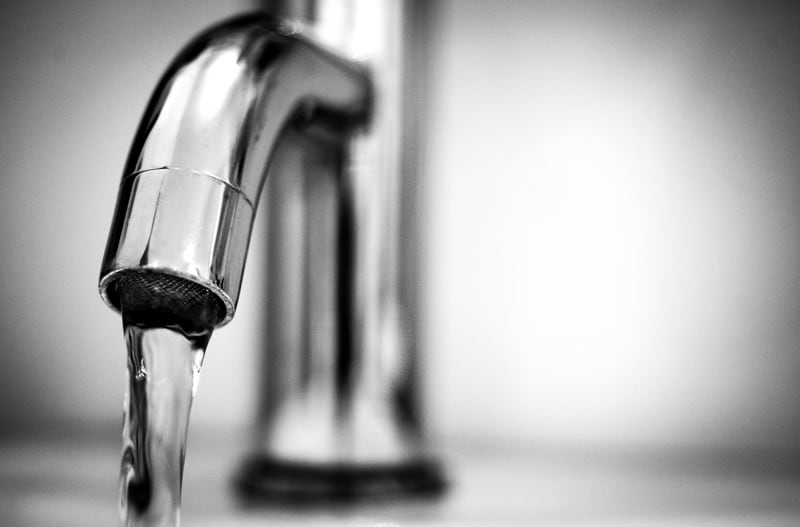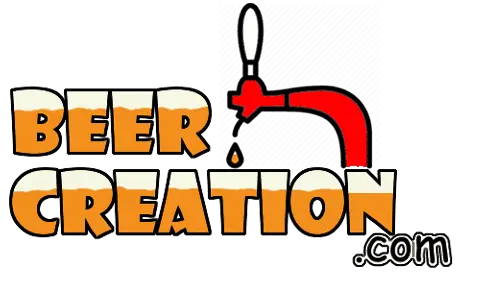Sometimes we take it for granted that water is so accessible to us, and that is really important when you brew beer. However, there is no doubt that some water just tastes better in some parts of the world.
I have a friend who swears blind that the Guinness in Dublin tastes far superior to any other pint of the black stuff he’s ever sipped, and that has to be the local water.
So, that got me to thinking, can you actually use the local water source to brew beer and can you get it straight from your faucet?
If your tap water is portable then you can certainly brew beer with it. Tap water is a better source of brewing water for extract brewers, however. Depending on whether your tap water is hard or soft and its chemical components, all-grain brewers, will be affected more, particularly while mashing.
so how do you decide whether or not your tap water is really fit to make your favorite beer? Well, that’s what this article is all about. I’ve gathered together all my notes from all my research so that you don’t have to look anywhere else for the information you need.
What type of water is ideal for brewing?

Well, this is a difficult question to answer because of the famous qualifier to all questions “it depends”. Different beers require a slightly different water profile to really shine, and there is a whole rabbit hole you can fall down if you really want to learn about adapting your brewing water for your beer recipes.
In a nutshell, according to the great John Palmer, “good brewing water for conducting the mash and creating the wort should be moderately hard and have low-to-moderate alkalinity“
In most cases, if your tap water is good to drink and doesn’t taste overly funky, it’s going to be perfect for brewing most types of beer. That is until you want to get really serious about your brewing!
However, there is a distinction between extract brewing and all-grain brewing which we’ll go over a little later in this article.
New to homebrewing? Please feel free to read my ultimate guide to brewing beer at home and where to start.
What’s in your tap water?
Well, let’s start with what should be in our tap water, and then move on from there.
Drinking water can come from two main sources, surface water from lakes and the like and groundwater. The former has a lot more organic matter mixed in with it whereas the latter has more mineral deposits.
Regardless of the source, drinking water needs to be purified. There are various ways to do this and the most common is to use Chloramines. Chlorine dioxide and Hydrogen Peroxide can also be used to do the job.
Water also contains calcium and magnesium in varying degrees. If you live in an area with ‘hard’ water, that means there is more calcium and magnesium dissolved in it than in an area with ‘soft’ water.
For most of us, that’s what we get in our water but in some cases, there can also be some nasty stuff in there. This may include high concentrations of lead, nitrates, arsenic, and even radioactive material. However, this isn’t the case for most places, so don’t panic!
When not to use tap water
In all honesty, you probably know when not to use your tap water, so here you are really asking beyond the obvious. That being said, if you wouldn’t actually drink a glass of the water from your faucet, then don’t use it in your beer!
There are four main reasons not to use your tap water for brewing beer:
- It’s contaminated in some way ( and therefore you don’t drink it anyway).
- It’s extremely hard
- it’s very soft and you want to follow an all-grain recipe.
- You are trying to emulate a particular water profile for a particular beer style.
I’m firmly in the camp that if you can drink it you can brew with it and for most brewers using tap water will never be an issue. However, there are some cases when you will have to resort to another water source.
Hard vs soft water
If you know that your local water, and therefore tap water, is either very hard or very soft this can really have an effect on your beer and especially if you brew from all-grain recipes.
Hard water means that the water has higher concentrations of dissolved calcium and magnesium in it. Calcium and Magnesium are great sources of nutrients for yeast in the right quantities. Calcium also has the effect of lowering the ph level during mashing and helps with acting on proteins during the boil.
Soft water has very little calcium or magnesium in it but much higher concentrations of sodium. Although sodium can be great in enhancing the mouthfeel of your beer, softened water isn’t great for the mashing phase of all-grain brewing.
Copy-cat water profiles
Not all water was created equal and some of your most favorite beers are that way because of the key ingredient in them, H2O. If you are trying to recreate that perfect clone beer, getting the water just right is vital. (see my article on clone beer here) So if this is the case, you probably won’t want to use your local tap water.
Also, just bear in mind that it’s not as simple as recreating the local water profile for, say, Dublin. You also need to find out what the brewer did to the water themselves before they brewed with it. That could be the important difference between their perfect product and your close copy.
Can you use tap water for mashing?
Yes, you can absolutely use tap water for mashing your grains, however, the chemical makeup of your water will affect the overall success of your mash.
Depending on whether you have soft or hard water you may get better or worse efficiency even if everything else remained the same. Remember that calcium, which is more present in hard water, can reduce the ph level of your mash which directly affects the enzymes working on the grain starch.
Also, if you have higher levels of sodium, from soft water, you will see that your efficiency, how much fermentable sugar you can extract, will not be as good as with harder water.
Read on to check how you can get your local water profile so that you know how you can adapt the water for a better mashing result.
Should you use tap water to top your wort up?
Yes, if your tap water is good enough to drink then it’s good enough to top up your wort in, say, your fermenter before you pitch your yeast.
I have on occasion miscalculated how much water I needed, or for some reason, my wife got into my water stash and I’ve had to use tap water to top up my wort to reach the correct batch yield. I really didn’t notice any difference.
Tap water: extract vs all grain brewing
Although there is a lot of teasing among brewers, especially all-grain brewers towards extract brewers, there is an important distinction. If the tap water you have available tastes pretty good, then it will almost always be absolutely fine when paired with an extract recipe, the same might not be said for an all-grain brewer just next door.
The main difference is that the extract brewer up the road doesn’t have to worry about getting the perfect mashing ph levels, they just have to add their can of extract to the wort they already made with their steeped specialty grains.
So, I would suggest that if you are brewing an extract kit, knock yourself out with as much tap water as you need. If you are brewing all-grain recipes, you really should check out the water and get a full analysis done for you.
How to check if your tap water is any good
The best way really to check if your tap water is up to the task or, at the very least, how you can work with it to make a decent pint is to get a pro to do it for you.
After checking with other homebrewers who know a thing or two, they all recommended working with Wardlab.com.
For less than $30 you can get a full brewer-focused study of your tap water so that you know exactly what you are working with. This could save you lots of money and backache if you are currently working with bottles of mineral water.
DIY home water testing kits
You can also get handy kits to test the quality and hardness of your tap water.

This will not only help you test the safety of your water source but also the level of hardness (in PPM).
See the latest deals and availability on Amazon

If you want to try something a little more digital, this device will also measure how hard your water is and give you an indication of the solubles in it.
You can also find this handy little water tester on Amazon.
Where is the tap water good?
Most Americans have absolutely nothing to worry about when it comes to their tap water, and that means home brewers too.
However, an NRDC report did come up with some worrying facts. There is a chance that 15% of people in the US have a dangerous source of water to drink from for various reasons. Also, every single state has some cases of systems that violate the EPA’s safe drinking act.
An interesting fact is that you are more at risk of contaminated water if you live in a rural area, although some urban settlements could also be at risk from certain issues.
You can check your zip code to see if your local water source is safe on the EWG website here.
What to do if your tap water is hard
Well, in many cases if you are dealing with hard water you are working with ideal brewing water. The question really comes down to how much calcium and magnesium there is in it.
Your knee-jerk reaction may be to try to filter or soften the water, which will actually remove a lot of the stuff you do want in your water and wort, and leave you with a higher sodium content.
The first thing to do is to go and get your water tested by Wardlab.com and then aim for the concentrations below:
Ion | Parts per million |
|---|---|
Calcium | 40-100 |
Sodium | 0-150 (ideally under 50) |
Magnesium | 2-30 |
What to do if your tap water is soft
The general consensus in the brewing community is not to use soft water, i.e. anything water which has gone through a water softening process. It is basically because it has had all the good stuff removed such as calcium, and has much higher levels of sodium.
Although I’m sure it’s great to drink, its chemistry will just cause you headaches when it comes to all-grain brewing. So, in that case, look for a different source of brewing water.





